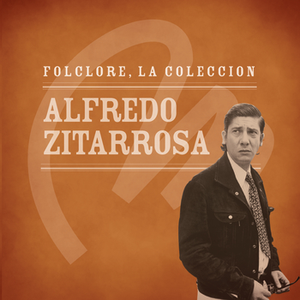Some of his better known songs include “Guitarra Negra”, “El violín de Becho”, “Doña Soledad”, “Pa’l que se va”, “Crece desde el pie”, “Milonga para una niña” and “Adagio en mi país”.
Malagueña
Alfredo Zitarrosa Lyrics
Jump to: Overall Meaning ↴ Line by Line Meaning ↴
Pusieron preso a tu marí'o * Guillermina,
y se lo llevaron para una fuerte prisión,
y como Guillermina quería tanto a su marí'o,*
fue a la cárcel a cantarle una canción.
Murió mi madre, yo staba ausente,
pero me dijo mi padre que, en su agonía de muerte,**
alzó su mano y me bendijo a mí.
Niña del campo que cortas flores
de nomeolvides y de azahar,
corta una rosa de dos colores
para mi amante que está al llegar.
Niña que bordas la blanca tela,
niña que tejes en tu telar,
bórdame el mapa de Venezuela***
y un pañuelito para llorar.
* Alfredo Zitarrosa dice marido.
** Alfredo Zitarrosa dice Murió mi madre, yo estaba ausente, / yo ausente estaba, yo no la vi, / pero dice mi padre que, en agonía de muerte.
*** Alfredo Zitarrosa dice bórdame el mapa de nuestra tierra.
In Alfredo Zitarrosa's song Malagueña, the singer faces various difficulties, yet they never forget about the ones they love. The first verse tells the story of Guillermina, whose husband has been unjustly imprisoned. Despite the situation, she still wants to show her love to him and goes to the prison to sing him a song. This symbolizes how love can overcome even the most challenging of situations.
The next verse tells the story of the singer's mother, who passed away while she was away. Her father tells her that in her last moments, she blessed her daughter. This illustrates the everlasting bond between mother and child, even in death. The following verse talks about a young girl who cuts flowers and specifically asks her to cut one with two colors, possibly symbolizing the complexity of love. It shows how even the smallest of gestures, such as giving a flower, can be meaningful when it comes from the heart.
Finally, the last verse talks about a girl who weaves and embroiders. The singer asks her to embroider a map of Venezuela, which can be interpreted in various ways. It could symbolize the longing for one's country or the desire to hold onto one's roots even when far away. The request for a handkerchief to cry is also poignant, showing that even when one is away from their country or loved ones, the tears they shed remain a constant reminder of those they miss.
Overall, Malagueña portrays the different forms of love and its enduring power despite life's hardships.
Line by Line Meaning
Pusieron preso a tu marí'o Guillermina,
Guillermina's husband was arrested and taken to a strong prison.
y se lo llevaron para una fuerte prisión,
He was taken to a high-security jail.
y como Guillermina quería tanto a su marí'o,
Since she loved her husband so much,
fue a la cárcel a cantarle una canción.
She went to jail to sing him a song.
Murió mi madre, yo staba ausente,
My mother died, and I was not present.
yo ausente estaba, yo, yo no la vi,
I was not there to see her.
pero me dijo mi padre que, en su agonía de muerte,
But my father told me that, in her agony of death,
alzó su mano y me bendijo a mí.
She raised her hand and blessed me.
Niña del campo que cortas flores
Country girl who cuts flowers,
de nomeolvides y de azahar,
Of forget-me-nots and orange blossom,
corta una rosa de dos colores
Cut a two-colored rose
para mi amante que está al llegar.
For my lover who is coming.
Niña que bordas la blanca tela,
Girl who embroiders white fabric,
niña que tejes en tu telar,
Girl who weaves on her loom,
bórdame el mapa de Venezuela
Embroider me a map of Venezuela
y un pañuelito para llorar.
And a handkerchief to cry with.
Contributed by Isabella N. Suggest a correction in the comments below.

Lua da Lubre
Alfredo Zitarrosa en el olimpo de los inmortales ❤
Gustavo Bernardico
Un grande ALFREDO ZITARROZA